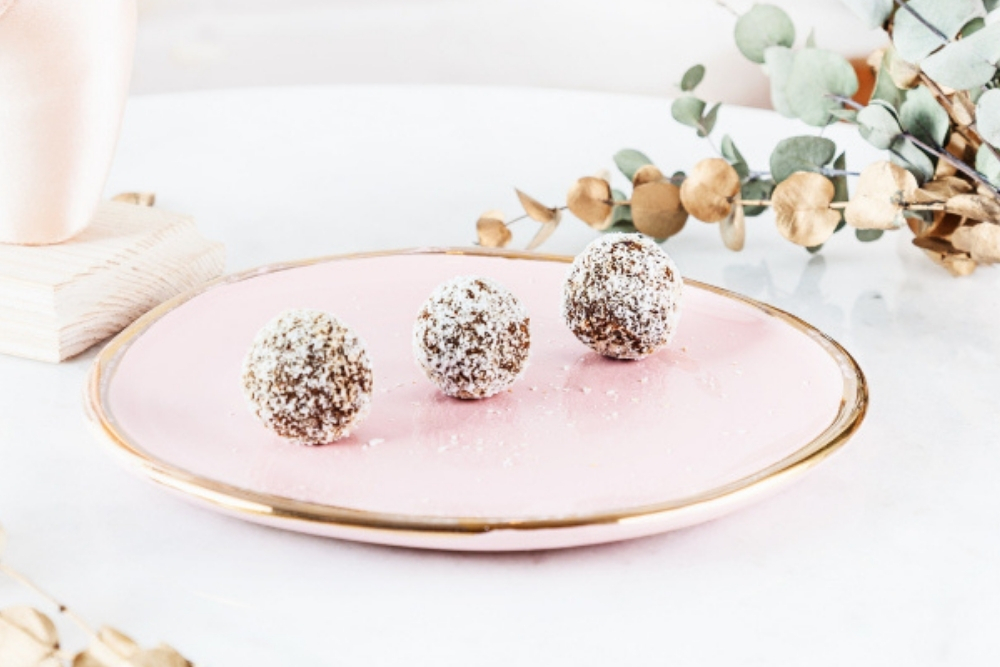November 2021 Edition
What’s New
Every day, we encounter billions of germs, but they’re not all bad. Though it may not be pleasant to think about, countless microbes live on and in our bodies, and they are actually necessary to maintain good health.
The Secrets to Building Your “Immunity Superpower”

It’s likely we all know someone who seems to have “superhuman” health. While we mortals battle seasonal allergies, colds, flu, stomach bugs and whatever else is making the rounds at schools and workplaces, these immunity superheroes go on working and playing or, if they do get sick, they overcome it quickly. Why is that?
Since the time of Hippocrates, the answer has been a mystery capturing the attention of doctors and researchers. In fact, there is a rigorous area of research known as psychoneuroimmunology that specifically focuses on this mystery. That’s a fancy word for the study of the way the mind (psych), the body (neuro, nervous system), and the immune system interact and contribute to both good health and illness, as well as recovery from illness, among other areas of scientific interest.
Research has begun to reveal how genetics, lifestyle, stress, personal history of illness and exposure to toxins affect the strength and resiliency of our immune response. These discoveries help delineate the characteristics that give some people “immunity superpowers” and explain why the rest of us have more kryptonite to overcome in our quest for health and vitality.
>What Makes Us Vulnerable to Getting Sick?
Genetics and family history. An increased likelihood for certain diseases can be “set-up” in a person’s biology by genetics and family history. But biology is not destiny. Just because a parent had a certain illness, doesn’t mean you are destined to the same fate. You are a unique individual living in a different time, having different experiences, with likely more knowledge about the benefits of a healthy lifestyle than the family who came before you.
Environment. While genetics provides your body with a template for health versus disease risk, the environment in which you work, live, and play fills in the details for that template to activate/deactivate different pathways within the nervous, immune, and endocrine systems. This revolutionary field of study known as epigenetics examines how your behaviors and environment can cause changes that affect the way your genes work.
Lifestyle. Broadly speaking, lifestyle is the end-game when it comes to vulnerability to or resilience over illness. Your lifestyle habits can make you more likely to get ill in two ways:
- by activating your genetic predispositions or
- by introducing germ-warfare that your body is not equipped to defend against.
On the positive side, lifestyle habits can rewire genetic predispositions and strengthen the immune response, which makes your body more resilient to viral or bacterial invaders.
Health science has shown us strong evidence for what we can do to make our bodies healthy, more resilient to illness, and better able to thrive as nature intended.
How to Build Your Immunity Superpower
There are several lifestyle “secrets” that can help you build your immunity superpower:
Nourish the Body. Your body needs fresh, colorful fruits and vegetables; lean meat, poultry and fish; healthy oils, whole grains, and nuts. It needs adequate hydration for digestion and absorption of nutrients and the efficiency with which all organ systems are able to work. You can complement high-quality nutrition with supplements such as vitamins, minerals, and herbs that are known to support the immune system (e.g., cod liver oil, probiotics, garlic, vitamins D, antioxidants such as vitamin C and A, astragalus, and ashwagandha among many others).
Relax the Mind/Body. Taking time to relax — away from phones and other screens — is essential to immunity. Research on the power of the mind over illness, and the effects of stress on immunity, demonstrates that a calm mind/body is better able to defend against disease and can even reduce the severity of illness when it occurs. Yoga, breathwork, mindfulness practices, massage therapy, gardening, zen sandboxes, guided imagery, and having a good laugh (yes! laughter) are a few of the practices that can shift the body’s template from disease-promoting to health-promoting.
Move the Body. Consistent, moderately vigorous daily exercise not only does wonders for heart, lungs, and muscles, it’s good for the health of the brain and immune system. If you aren’t exercising regularly, consult with your holistic health practitioner or a certified fitness professional to help you get started.
Live Clean. Strive to actively control the things you use and put in your environment. Use air purifiers. Clean home air filters regularly. Use organic (less toxic) household cleaning supplies. Carefully choose the cosmetics you use on your skin.
Remember: health is a journey. The more often you practice healthy lifestyle habits, the healthier you make the template within the body and the more likely you will be to create your own “health superpower.”
Colorful Carrots: Crunch Your Way to Good Health this Winter

Available throughout most of the year, carrots are a staple of a healthy diet and a well-known source of Vitamin A. Contrary to popular notion, Vitamin A is not a single nutrient, but a group of related nutrients: retinols and carotenoids. Our bodies require retinol for supporting a healthy immune system among other biological functions. Retinols are found in animal foods, but the body can also make retinol from carotenoids. Carotenoids are largely found in vegetables–and carrots are at the top of the list.
The carotenoids found in carrots have antioxidant and anti-inflammatory properties. These properties counter processes that can lead to illness and chronic disease. Bonus: The human body does a great job converting carotenoids into retinoid forms within the body. This means that having a daily dose of carrots is a real boost to the immune system and other systems that help protect you from illness.
When purchasing carrots, look for organic bunches with deep green tops and firm bodies. All colors of carrots (yellow, red, white, purple, orange) are good for your health. All varieties are delicious! Carrots may be enjoyed raw, steamed, or in a stir-fry dish. Boiling is not recommended as that can deplete nutrient density. You can also use carrots in fermenting recipes, pickling, and add to broth or stew. Shredded carrots can be added into cake or cookie recipes, ground-meat or meatless entrees such as meatloaf and burgers. The possibilities are carrot-astic!
Vegan No-Bake Carrot Cake Truffles

Experience the nutty sweetness of carrot cake in a healthy, bite-size truffle. In this recipe, bound to be a favorite at your holiday gatherings, walnuts and pecans provide healthy fat, while carrots, coconut flakes, and medjool dates provide nutrient density. Cinnamon and nutmeg top off the autumn notes while ginger adds zing.
Prep Time 10 Mins
Total Time 40 Mins
Serves 12 (serving size: 2 truffles)
Ingredients
- 1 cup raw unsalted walnut halves
- 1 cup raw, unsalted pecans
- 1 cup pitted medjool dates
- 1/2 cup dried unsweetened pineapple
- 1 cup unsweetened shredded coconut, plus extra for coating (if desired)
- 1 teaspoon cinnamon
- 1/2 teaspoon ground ginger
- 1/4 teaspoon nutmeg
- 1/4 teaspoon kosher salt
- 1 1/2 cups finely shredded carrots
Preparation
- Place walnuts, pecans, dates, and pineapple in a high-power food processor. Process until almost paste-like. Add coconut, cinnamon, ginger, nutmeg, and salt. Process until combined. Turn the mixture out into a bowl.
- Use a paper towel to blot excess water from carrots. Add carrots to the mixture and combine. Form mixture into 24 round truffles; roll in shredded coconut flakes to coat, if desired. Chill until firm, about 30 minutes.
Astragalus Root for Strengthening Immunity

Centuries of Traditional Chinese Medicine and European botanical medicine have documented Astragalus root (Astragalus Membranaceus) as a tonic to support the health of the spleen and the immune system, helping the body build resistance to illness. Today, researchers are studying how Astragalus may help prevent the common cold and be a complementary therapy to establish immune health.
Some of the many beneficial properties of Astragalus include:
- Astragalus contains polysaccharides, which enhance the ability of white blood cells (instrumental in immune function) to eliminate foreign substances from the body.
- Saponins found in Astragalus are known to protect the liver, an important organ of detoxification, and stimulate the release of cytokines, chemical messengers in the immune system.
- With its antioxidant properties, Astragalus facilitates the breakdown of free radicals, thus reducing free radical damage in the blood system.
Also known as milk vetch, Astragalus was once only found in Mongolia and China. Today, it is grown in temperate areas of the Northern hemisphere. It takes a full two years before the plant develops roots sufficient for harvesting the plant’s medicinal properties.
Astragalus is often included in “immunity support” herbal blends with other herbs known to promote recovery in times of stress or illness. Supplements are available in capsule, liquid, tincture, injectable, and extract. This herb may interact with other medicines, including other herbal remedies, over-the-counter, and pharmaceutical drugs. Consult with a qualified holistic health practitioner to determine the appropriateness of taking Astragalus to support your health and wellbeing.
Cod Liver Oil: Your Grandmother’s Remedy for Good Health

You may have heard a family member talk about the grandmother who professed the health benefits of cod liver oil. Well, research shows that grandma was on to something! Here are a few of the ways that cod liver oil supports immunity and helps protect you from illness:
- Cod liver oil (CLO) is a natural and abundant source of vitamin D, which is instrumental in the functioning of your immune system. At the beginning of the 20th century, scientists established that cod liver oil was a source of vitamin D and therefore a remedy to cure rickets.
- CLO is also a natural source of vitamin A, another immunity strengthening nutrient.
- EPA and DHA omega-3 fatty acids, which are important building blocks in all of the body’s cells, are also found in cod liver oil. Since your body does not produce omega-3 fatty acids by itself, you need to provide these nutrients through food or by taking nutritional supplements.
While a spoonful of cod liver oil may have been the way of our grandmother, today there are supplements we can take. Be sure the one you choose has an appropriate balance of vitamins D and A. The ideal ratio of A to D should be no greater than 10:1 (for every 10 units of vitamin A, there should be one unit of vitamin D). This is important because vitamin A can build up in your tissues, stress the liver and result in toxicity. Look for a supplement that naturally contains the proper ratio. Synthetic sources of cod liver oil do not contain balanced ratios. A holistic health practitioner can guide you on the type and amount of CLO supplement that is best suited to your health concerns.
Bodywork for the Fascia: Bowen Therapy

Bowen Therapy (aka Bowen Technique or BowTech) is a form of bodywork that works on releasing tension and stress held in the fascia, the network of soft connective tissue that overlays muscles and organs throughout the body. In fact, the fascia envelops, separates and influences every organ and tissue in the body. Bowen therapy can be used to relieve pain, tightness, and spasm by stimulating the neuromuscular system. It can be used to treat musculoskeletal conditions, as well as neuromuscular conditions, ranging from acute injury to chronic disease and genetic conditions.
Although it looks a lot like massage therapy, Bowen therapy uses precise and gentle rolling hand movements that follow specific patterns across the body. These motions and patterns focus on the fascia overlying muscles, as well as the tendons, and ligaments, and the skin around these structures.
Bowen therapy is generally safe for people of all ages, from newborns to the elderly. However, it is important to seek the services of a qualified (properly trained) Bowen therapist. The American Bowen Academy is a good place to start. You can also ask your holistic practitioner for names of Bowen therapists in your area.
Guiding Principles







